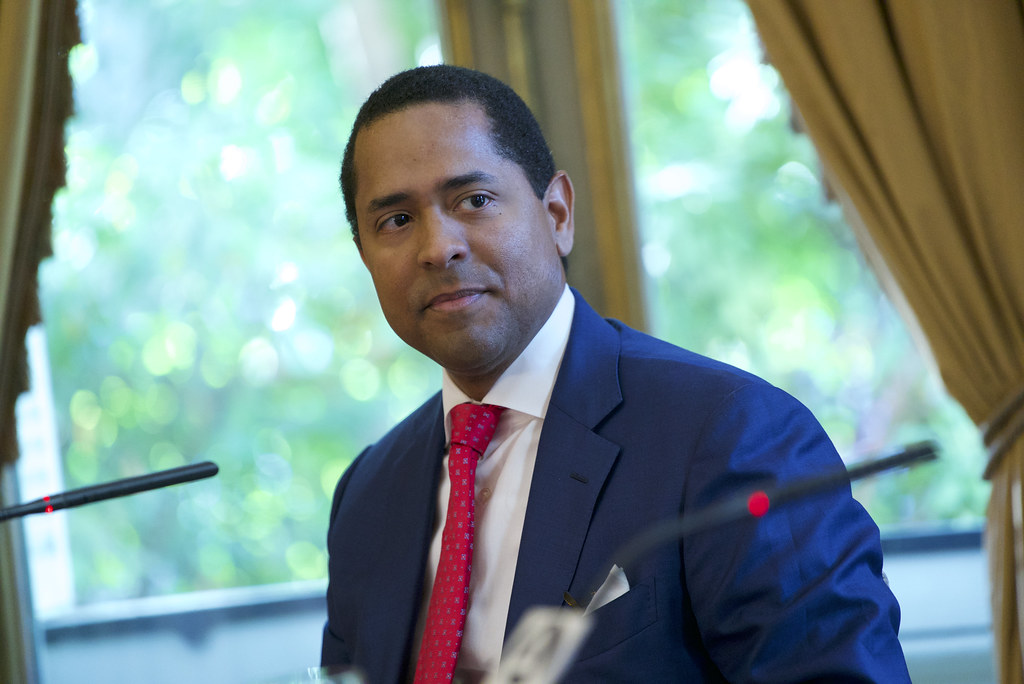Rafael Cox Alomar , professor of Law at the University of the District of Columbia, presented his book The Puerto Rico Constitution in the United States Congress.
The Preamble of Puerto Rico’s constitution begins, “We, the people of Puerto Rico, in order to organize ourselves politically on a fully democratic basis, to promote the general welfare, and to secure for ourselves and our posterity the complete enjoyment of human rights, placing our trust in Almighty God, do ordain and establish this Constitution for the commonwealth which, in the exercise of our natural rights, we now create within our union with the United States of America.”
Cox Alomar says in his book that the statehood party argued in 1952 that “our union with the United States of America” should read “our permanent union wit the United States of America.”
The preamble goes on to say, “In so doing, we declare:
The democratic system is fundamental to the life of the Puerto Rican community;
We understand that the democratic system of government is one in which the will of the people is the source of public power, the political order is subordinate to the rights of man, and the free participation of the citizen in collective decisions is assured;”
Puerto Rico’s political status
This stirring declaration leads Cox Alomar to point out that Congress is actually the source of Puerto Rico’s power and indeed the source of the constitution, which the U.S. Congress asked for and then altered before approving it. He also describes the next statement —
“We consider as determining factors in our life our citizenship of the United States of America and our aspiration continually to enrich our democratic heritage in the individual and collective enjoyment of its rights and privileges;”
— as a compromise between the statehood and commonwealth parties. Governor Muñoz Marín supported this phrase, which was approved shortly before the end of the convention, specifically because it left the question of Puerto Rico’s political status up in the air. However, Cox Alomar says, the courts have taken this phrase to mean that statehood is the natural outcome of Puerto Rico’s relationship with the United States.
However, he also points out that the statehood party tried and failed to include language explicitly demanding statehood.
The ending
This final section is also inspiring:
“We consider as determining factors in our life our citizenship of the United States of America and our aspiration continually to enrich our democratic heritage in the individual and collective enjoyment of its rights and privileges; our loyalty to the principles of the Federal Constitution; the co-existence in Puerto Rico of the two great cultures of the American Hemisphere; our fervor for education; our faith in justice; our devotion to the courageous, industrious, and peaceful way of life; our fidelity to individual human values above and beyond social position, racial differences, and economic interests; and our hope for a better world based on these principles.”
Thus, the Puerto Rico Constitution confirms the importance of U.S. citizenship in Puerto Rico. It also pledges acceptance of the U.S. Constitution. Under the U.S. Constitution, it is doubtful that any political status apart from statehood could provide continued U.S. citizenship. While the constitution of Puerto Rico does not call for statehood, it is consistent with statehood.
Image courtesy of Casa de América








No responses yet